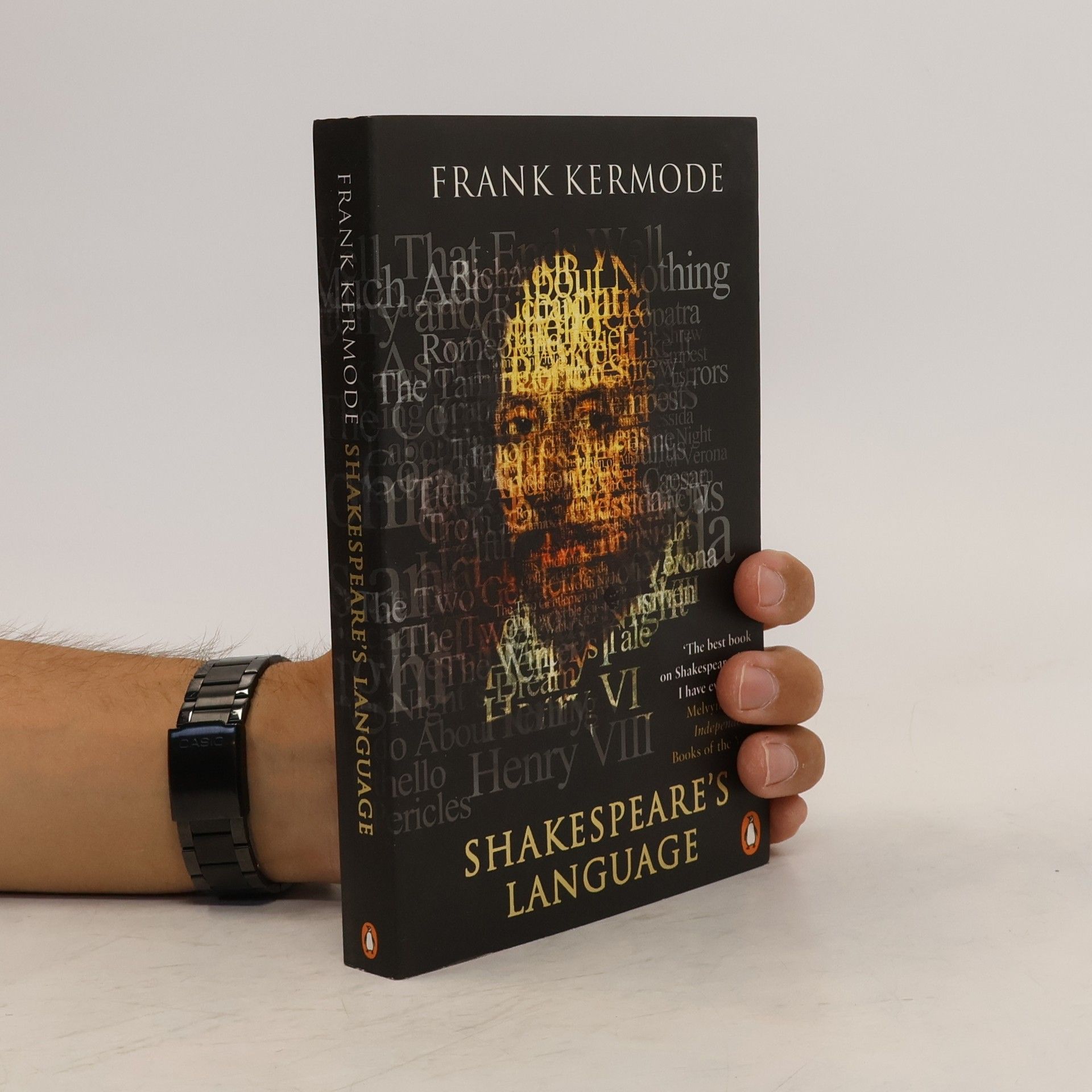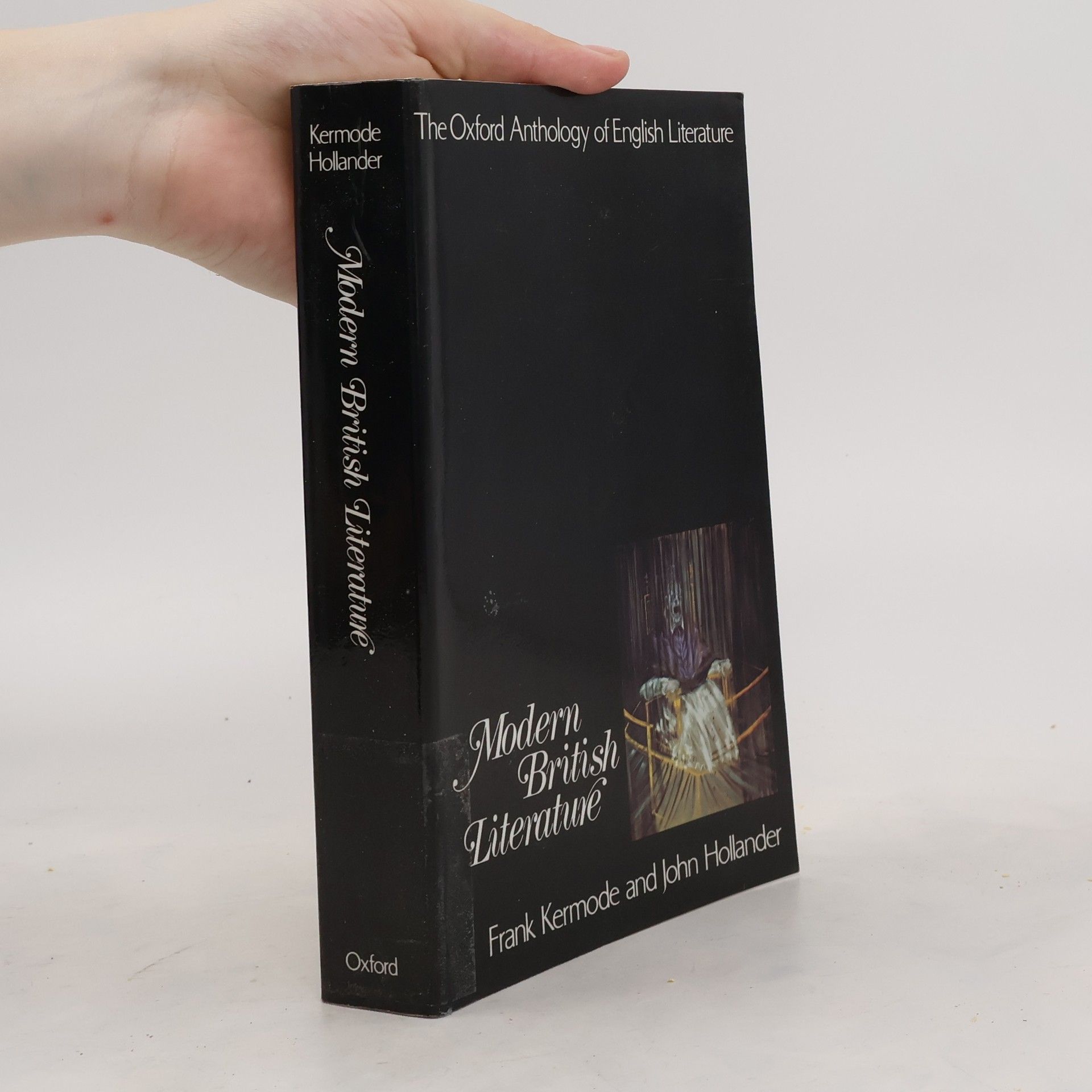Paris Review 6th Series is the sixth of collection literary interviews published by The Paris Review (1985), edited by George Plimpton, and includes an introduction by Frank Kermode.Interviews: Rebecca West; Stephen Spender; Tennessee Williams; Elizabeth Bishop; Bernard Malamud; William Goyen; Kurt Vonnegut, Jr; Nadine Gordimer; James Merrill; Gabriel García Márquez; Carlos Fuentes; John Gardner .
Frank Kermode Bücher
Sir John Frank Kermode war ein hoch angesehener britischer Literaturkritiker, dessen Werk sich durch eine tiefgreifende Auseinandersetzung mit der Fiktionstheorie auszeichnete. Seine Schriften untersuchten häufig, wie Individuen aus Erzählungen Sinn konstruieren und wie sich diese Interpretation im Laufe der Zeit entwickelt. Kermode erforschte, wie literarische Formen unser Verständnis der Welt und unserer eigenen Existenz widerspiegeln und prägen. Sein kritischer Ansatz beleuchtete die Komplexität der literarischen Kunst und ihren Platz in der menschlichen Kultur.

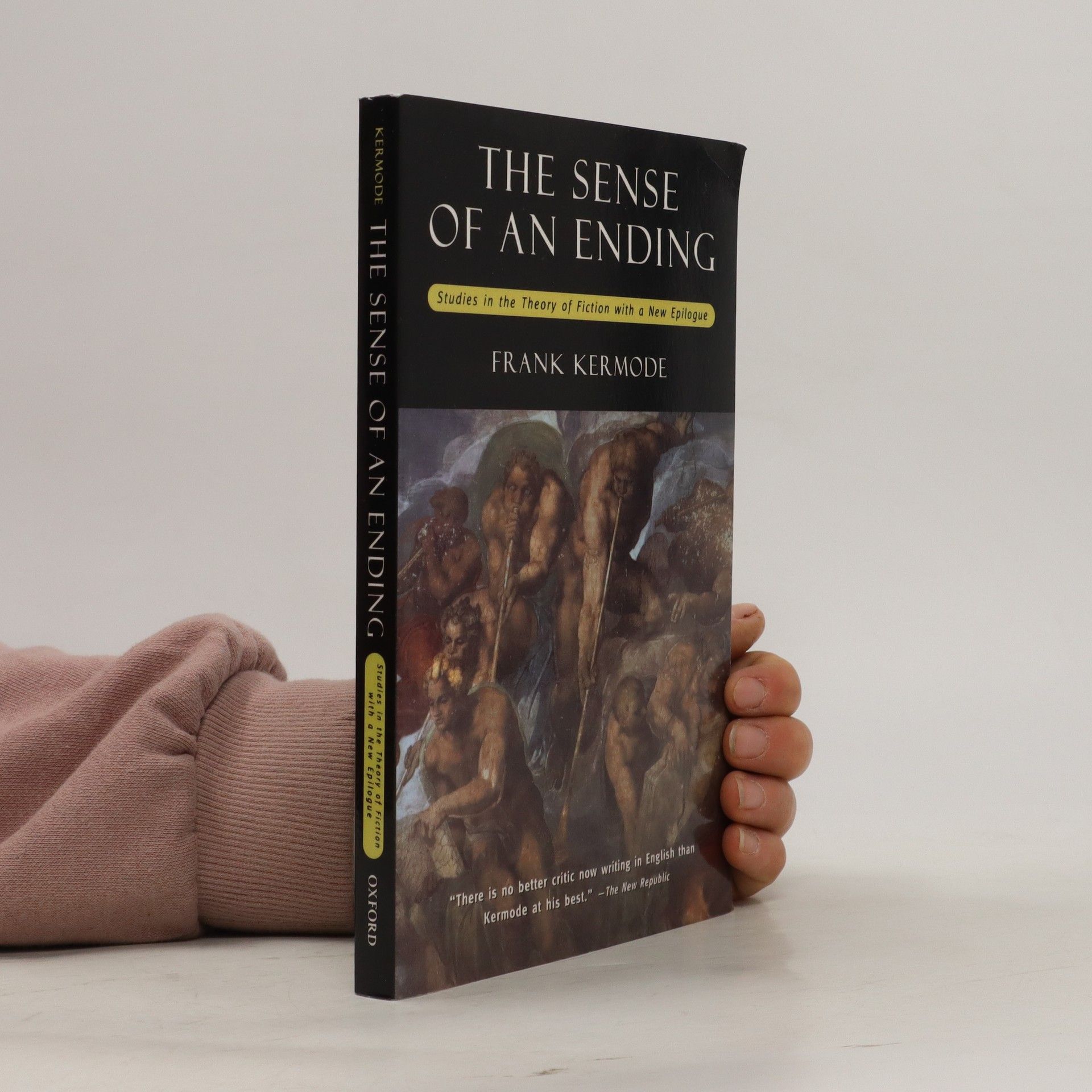
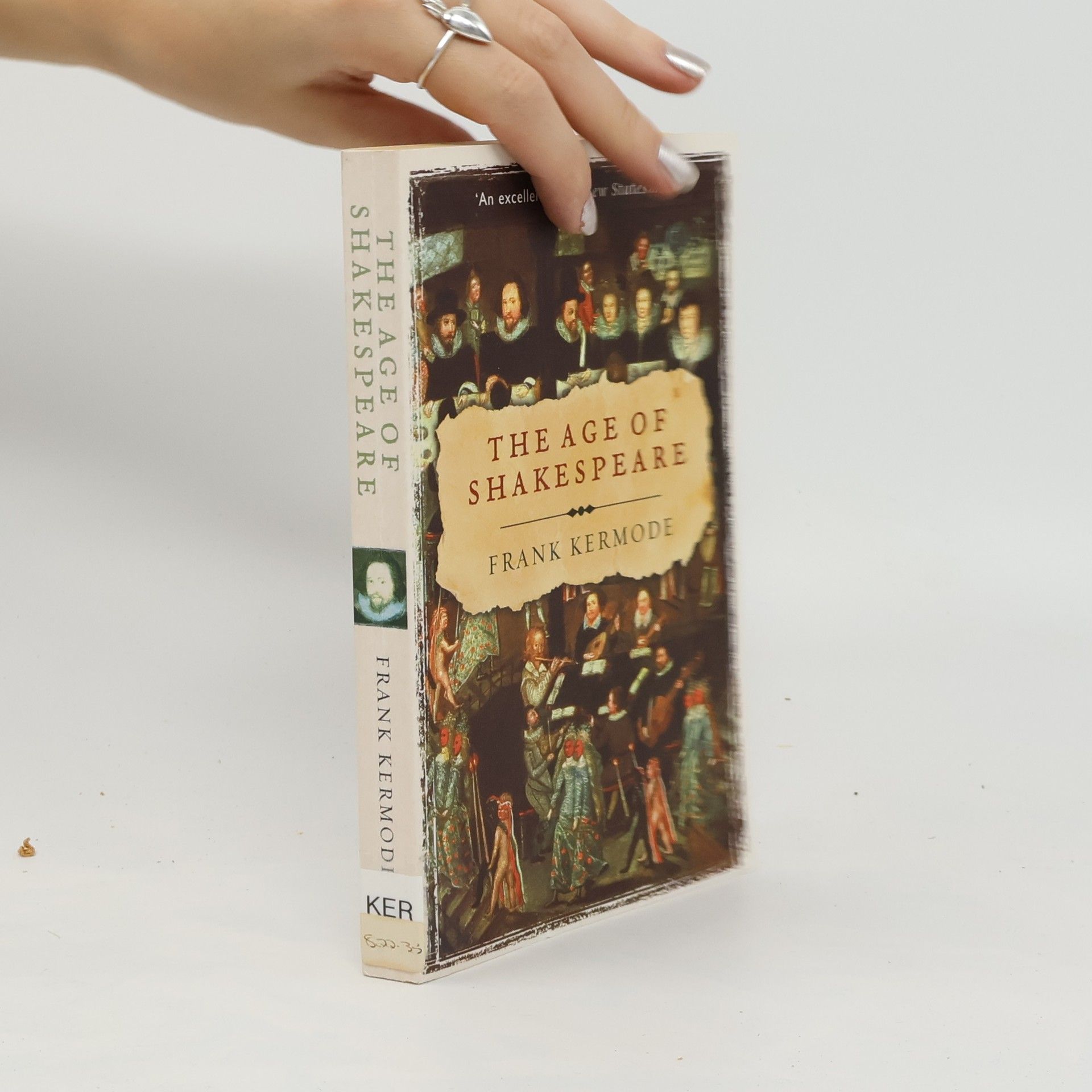
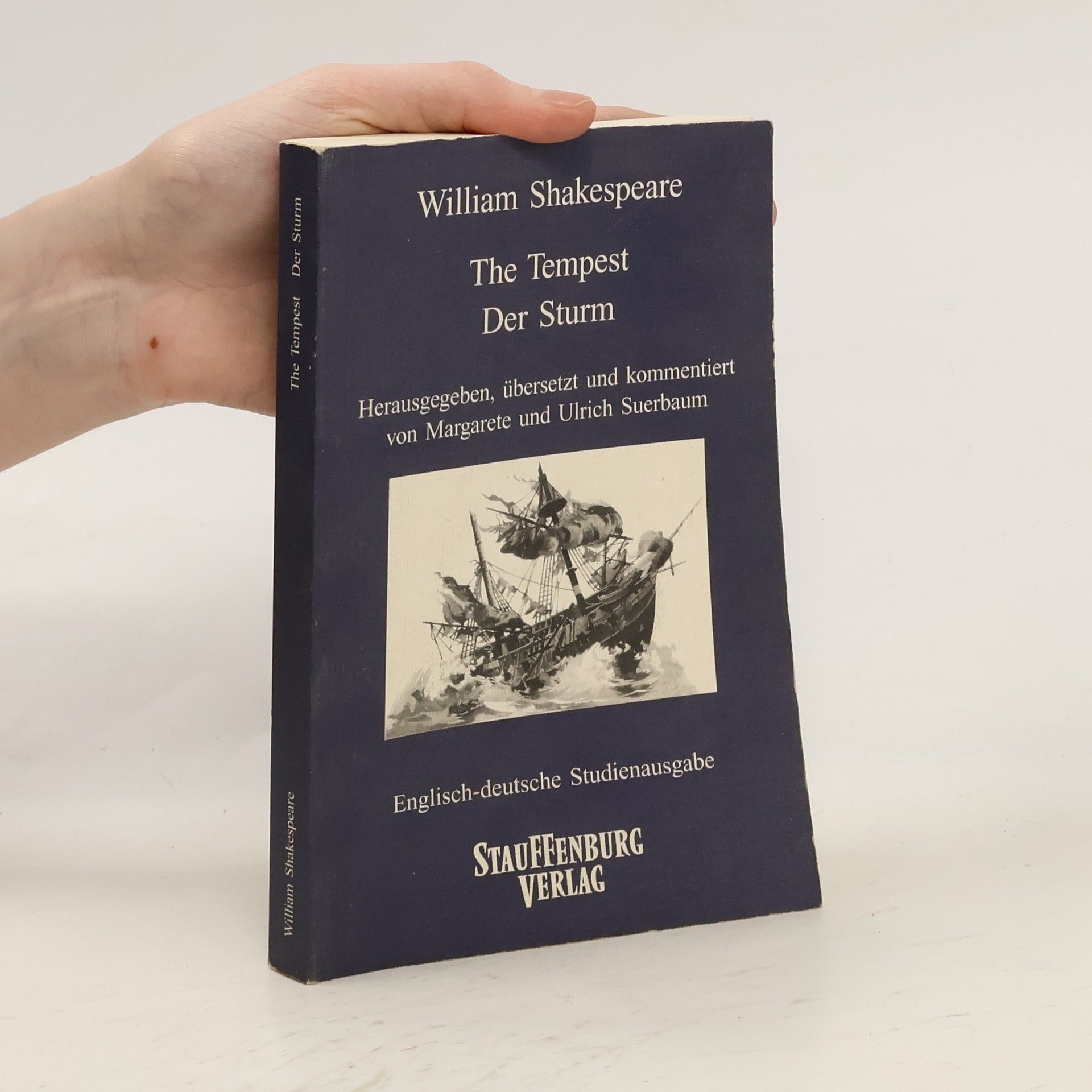
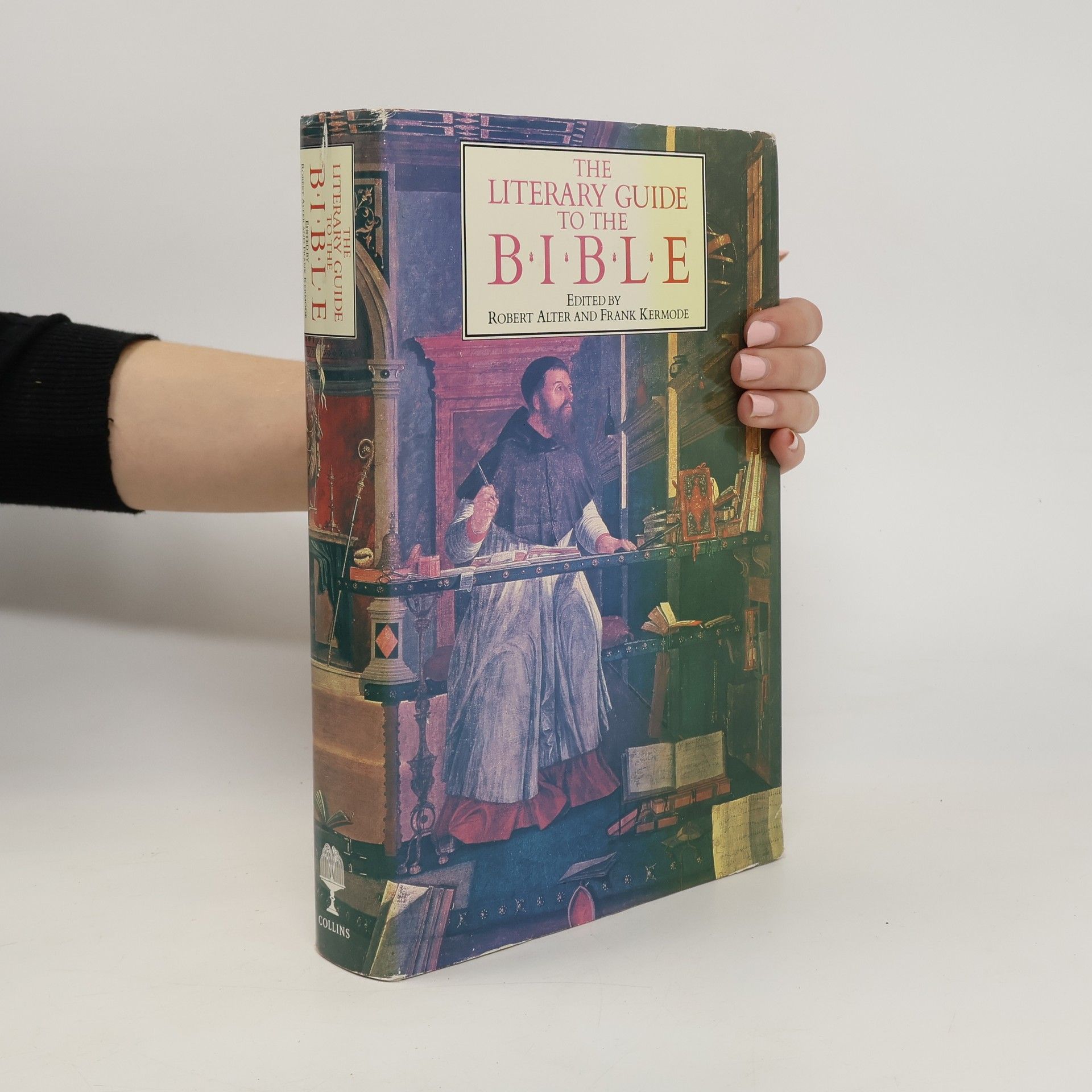
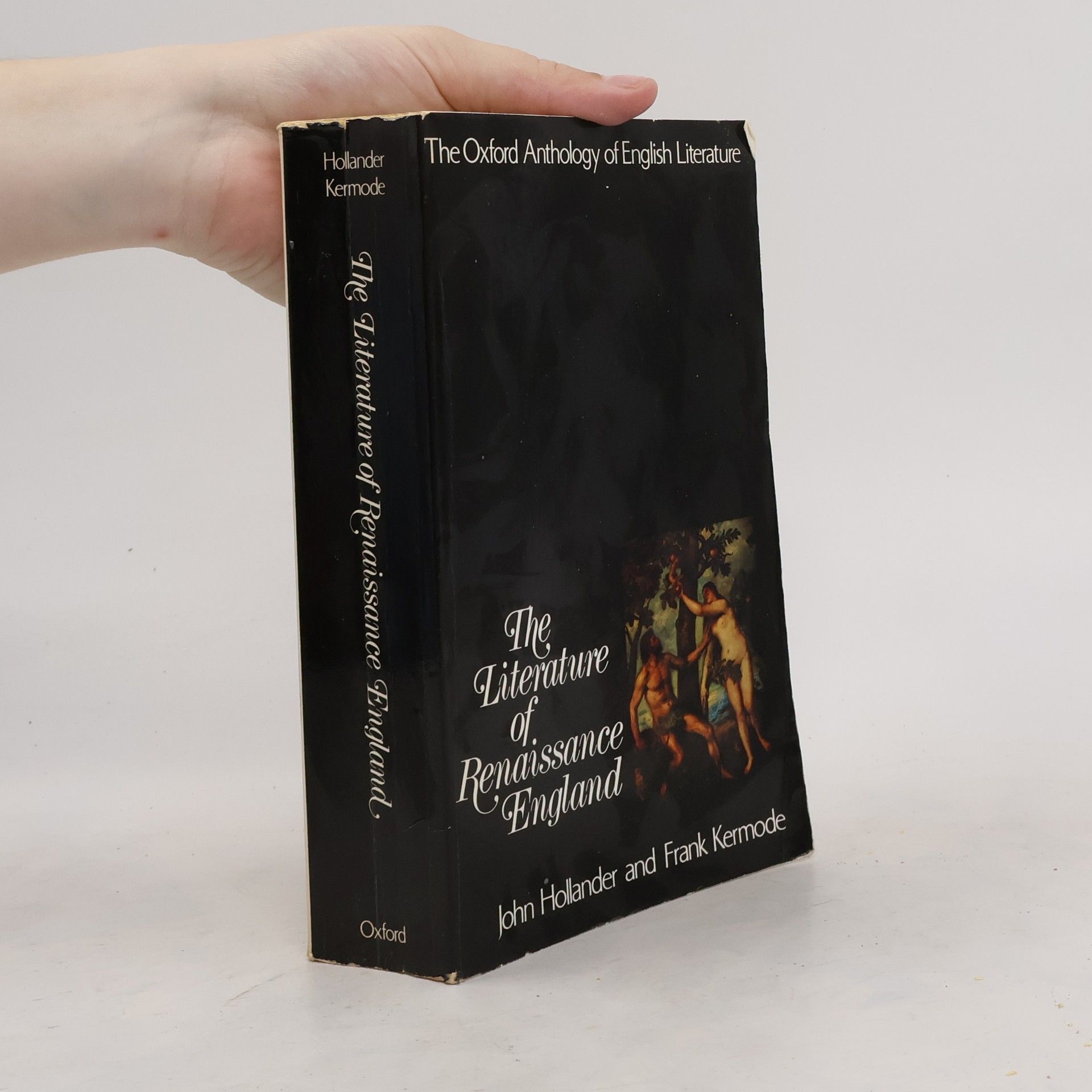
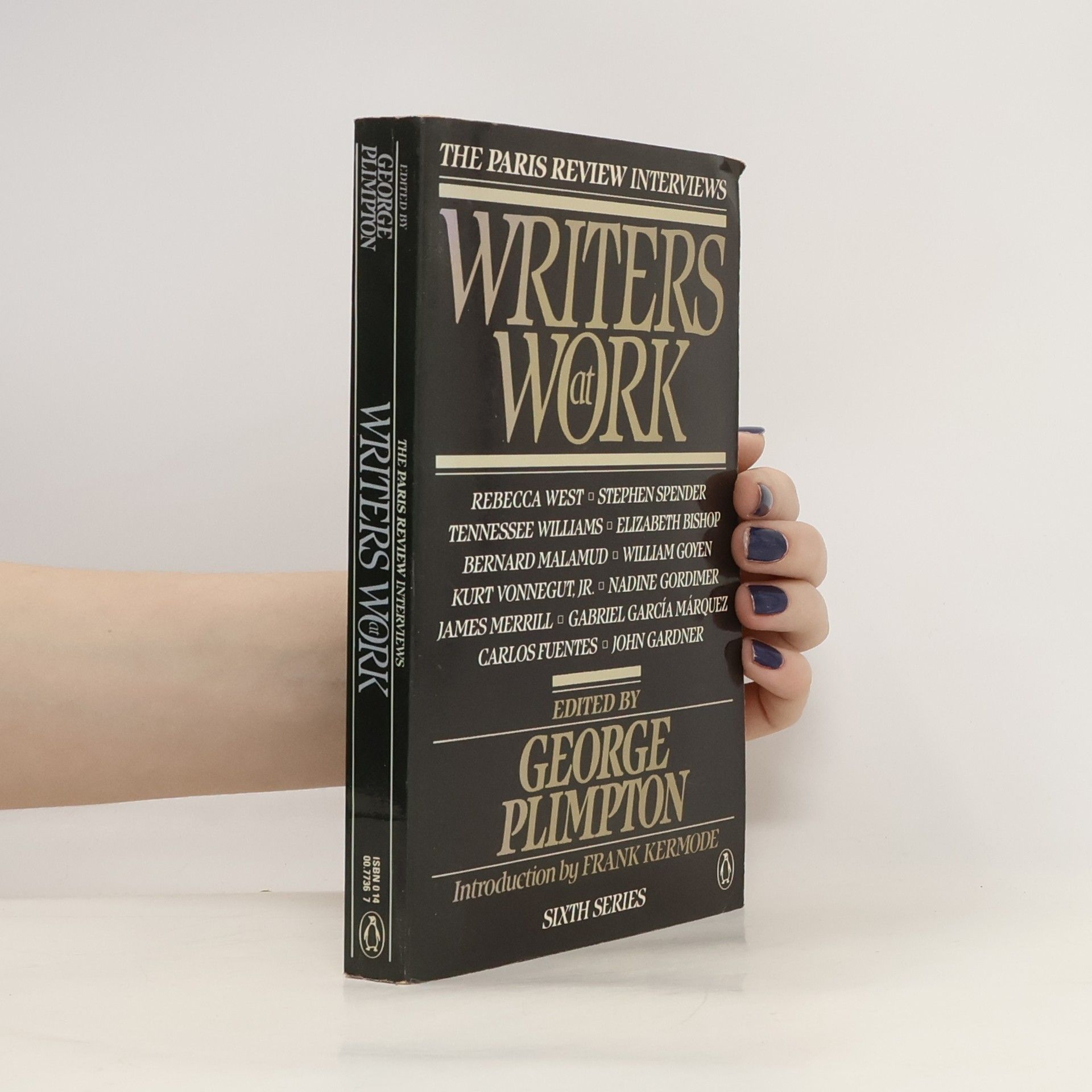
This volume includes works by Spenser (excerpts from all books of The Faerie Queene), Shakespeare (including The Tempest), Marlowe (Dr. Faustus, Hero and Leander), Donne, and Milton (Comus, Samson Agonistes, and long excerpts from Paradise Lost).
This is a collection of essays on each book of the Bible, and a number that relate to the Bible as a whole. It brings modern literary and historical analysis to this greatest of all works of literature.
The Tempest, die Geschichte von dem entmachteten und vertriebenen Herzog von Mailand, der im Exil auf einer Insel im Meer eine neue Herrschaft errichtet und durch Magie alle seine Feinde in seine Gewalt bringt, ist eines der faszinierendsten und vieldeutigsten Dramen Shakespeares. Es ist wechselweise als romantisches Märchen- und Zauberstück, als persönliche Abschiedsbotschaft des Dichters in seinem letzten großen Werk, als Parabel von Großmut und Vergebung und als Lehrstück über das Unrecht der Kolonialherrschaft gedeutet und inszeniert worden. Es reizt immer noch zu neuen Interpretationen und Aufführungsweisen.
The Age of Shakespeare
- 208 Seiten
- 8 Lesestunden
'The greatest literary scholar of his generation' (Independent) explains how the history of the Elizabethan era is the backdrop to William Shakespeare and his plays.
s/t: With a New EpilogueFrank Kermode is one of our most distinguished and beloved critics of English literature. Here, he contributes a new epilogue to his collection of classic lectures on the relationship of fiction to age-old concepts of apocalyptic chaos and crisis. Prompted by the approach of the millennium, he revisits the book which brings his highly concentrated insights to bear on some of the most unyielding philosophical and aesthetic enigmas. Examining the works of writers from Plato to William Burrows, Kermode shows how they have persistently imposed their "fictions" upon the face of eternity and how these have reflected the apocalyptic spirit. Kermode then discusses literature at a time when new fictive explanations, as used by Spenser and Shakespeare, were being devised to fit a world of uncertain beginning and end. He goes on to deal perceptively with modern literaturewith "traditionalists" such as Yeats, Eliot, and Joyce, as well as contemporary "schismatics," the French "new novelists," and such seminal figures as Jean-Paul Sartre and Samuel Beckett. Whether weighing the difference between modern and earlier modes of apocalyptic thought, considering the degeneration of fiction into myth, or commenting on the vogue of the Absurd, Kermode is distinctly lucid, persuasive, witty, and prodigal of ideas.
Shakespeare's Language
- 320 Seiten
- 12 Lesestunden
The true biography of Shakespeare is in the plays. The great English tragedies were all written in the first decade of the seventeenth century. They are often in language that is difficult to us, and must have been hard even for contemporaries. How and why did Shakespeare's language develop as it did? schovat popis
Pleasure and change: the aesthetics of canon
- 108 Seiten
- 4 Lesestunden
The question of the canon has been the subject of debate in academic circles for over fifteen years. Pleasure and Change contains two lectures on this important subject by the distinguished literary critic Sir Frank Kermode. In essays that were originally delivered as Tanner Lectures at Berkeley in November of 2001, Kermode reinterprets the question of canon formation in light of two related and central pleasure and change . He asks how aesthetic pleasure informs what we find valuable, and how this perception changes over time. Kermode also explores the role of chance, observing the connections between canon formation and unintentional and sometimes even random circumstance. Geoffrey Hartmann (Yale University), John Guillory (New York University), and Carey Perloff (director of the American Conservatory Theatre) offer incisive comments on these essays, to which Kermode responds in a lively rejoinder. The volume begins with a helpful introduction by Robert Alter. Theresult is a stimulating and accessible discussion of a highly significant cultural debate.
Concerning E. M. Forster
- 180 Seiten
- 7 Lesestunden
A major reassessment of the great English novelistThis impressive new the celebrated British critic Frank Kermode examines hitherto neglected aspects of the novelist E. M. Forster€™s life and work. Kermode is interested to see how it was that this apparently shy, reclusive man should have claimed and kept such a central position in the English writing of his time, even though for decades he composed no fiction and he was not close to any of his great contemporaries€”Henry James, Ford Madox Ford, Joseph Conrad, James Joyce.Concerning E. M. Forster has at its core the Clark Lectures that Kermode gave at Cambridge University in 2007 on the subject of Forster, eighty years after Forster himself gave those lectures, which became Aspects of the Novel. Kermode reappraised the influence and meaning of that great work, assessed the significance of Forster€™s profound musicality (Britten thought him the most mu
This 4,500-page collection presents the finest literature produced in Great Britain from the Middle Ages through the twentieth century. It has been edited and annotated by six eminent critics and scholars. Almost three hundred illustrations show the relationship between images in language and in pictures. The Oxford Anthology of English Literature is available in three formats: a two-volume cloth edition, breaking at 1800; a two-volume paper edition, breaking at 1800; and six paperbound volumes, each covering one of the traditional periods of English literary history
